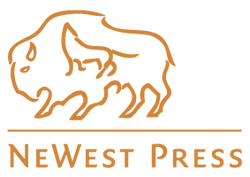The Home For Wayward Parrots
by Darusha Wehm
Find at your local bookstore
978-1-988732-27-5 | 2018 May | 232 Pages
Available as an audiobook on Audible, Hoopla, OverDrive, Audiobooks.com, Scribd, eStories, Downpour, Libro FM, Kobo, Google, and Apple.
ABOUT THIS BOOK
Accustomed to being an only child, adoptee Brian “Gumbo” Guillemot’s teenage hobby was searching for his birth parents. After years without a lead, when he finally finds his birth mother, Kim, he’s unprepared for the boisterous instant family that comes with her.
No one, besides Kim, knows anything about Gumbo's birth father. With Kim refusing to answer any questions, Gumbo must choose whether to continue the search, even if it means alienating his few friends and both his families. And the more he learns, the more he wonders whether some things are better left unknown.
Captivating and playful, The Home For Wayward Parrots explores friendship, romance, modern families and geek pop culture with wit, compassion and extremely foul-mouthed birds.
“A love song to late bloomers, eclectic families and all the assorted weirdos, hang-ups and half-understood stories that make up a life. And a poignant reminder that even in all our messy, neurotic, parrot-brained glory, we are also capable of beauty, grace and love.”
~ Greg Bechtel, author of Boundary Problems
“A bittersweet tale of eccentricity, delayed development and getting on with the messy business of life.”
~ Sarah Murdoch, Toronto Star
“This novel should be devoured in a single sitting.”
~ Megan Kuklis, The Fiddlehead
I was sitting on the toilet the first time I ever spoke with my mother. It was a bad habit, taking the phone into the bathroom, but I did it every time. Ever since I got one of those phones with the internet and everything, I’d find myself surfing while taking a crap. I figure that it’s just the twenty-first-century equivalent of reading the sports section on the john. Of course, the sports section never rings with the phone call you’ve been wanting to get for thirty years.
Don’t get me wrong—I grew up with a mom and dad just like about half the rest of the world. It was almost like the descriptions in a badly written children’s book; we lived in a white clapboard house on a tree-lined street in a quaint little town. The reality is that I don’t even know what clapboard is, and the house was blue, except for the year my dad got creative. Mom repainted it the next summer. Blue.
I think she liked the blue because Mom was a cop. When I was little I thought her first name was Officer. I think she would have worn her uniform on her days off if she were allowed. On the other hand, unless you lived with us, you’d hardly even know that Dad had a job. Some people thought he was embarrassed—he was a nurse—but really it was that he didn’t care about work like Mom did. Dad was a good nurse, but he didn’t love nursing like Mom loved policing. It was just a job for him and he left the patients at the hospital. Being a cop was like Mom’s religion.
Other kids used to make fun of me because of Mom and Dad. “Does your dad wear an apron, too?” they’d ask. I knew it was supposed to be mean, but he did wear an apron sometimes. It never seemed weird to me, because it’s just what was normal in my house. Looking back, I guess I’m lucky they named me Brian; I could have been saddled with one of those horrible gender-neutral monikers you see everywhere these days. Logan, Mason and Taylor, like some kind of unisex law firm.
I was lucky in a lot of ways, I know. My parents never let me forget that they loved me; they even spun the whole adopted thing as a way of proving it. They picked me—I was no accident. And I love my folks just fine, but I can’t say I never thought about it. To be honest, I thought about the fact that I was adopted all the time.
- Choosing a selection results in a full page refresh.
- Press the space key then arrow keys to make a selection.

